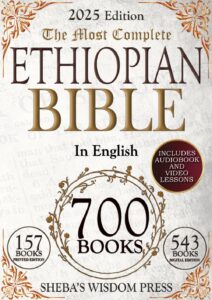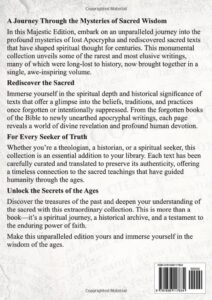In an era of unprecedented access to information, spiritual exploration, and diverse philosophical texts, there exists a curious phenomenon, a widespread reluctance to engage with one of the most historically significant and influential books in human history, the Bible. Despite an increasing appetite for spiritual literature, mystical writings, and alternative philosophical narratives, many individuals seem to deliberately sidestep the biblical text.

The Landscape of Modern Spiritual Curiosity
Today’s spiritual marketplace is remarkably diverse. Bookstore shelves and online platforms are filled with an eclectic mix of spiritual and metaphysical literature. From Eastern philosophy to New Age mysticism, from shamanic practices to quantum spirituality, people are voraciously consuming diverse spiritual narratives. Individuals eagerly dive into texts about energy healing, cosmic consciousness, meditation techniques, and esoteric wisdom traditions.
Yet, when it comes to the Bible, a palpable hesitation emerges. This isn’t merely a passive disinterest but often an active resistance—a psychological and emotional barrier that seems to block meaningful engagement with biblical text.
Understanding the Modern Spiritual Paradox
Several factors contribute to this contemporary spiritual paradox:
Cultural Misrepresentation
Many people’s perception of the Bible is shaped not by direct engagement, but by secondhand narratives, media portrayals, and sometimes negative personal experiences with religious institutions. The scripture becomes conflated with institutional practices, historical controversies, and polarizing political discussions, obscuring its profound spiritual depth.
Fear of Complexity
The Bible’s historical and linguistic complexity can be intimidating. Its ancient contexts, multiple authorship, and intricate narratives require thoughtful, nuanced reading. In an age of instant gratification and quick soundbites, the idea of deeply engaging with an ancient text feels overwhelming to many.
Preconceived Notions
Potential readers often approach the Bible with predetermined assumptions. Some view it as a rigid, judgmental text, while others see it as a collection of archaic rules disconnected from modern life. These preconceptions create an invisible barrier, preventing genuine exploration.
Intellectual Intimidation
There’s a prevalent misconception that understanding the Bible requires advanced theological training. This perceived intellectual barrier discourages casual readers who might otherwise be curious about its contents.
The Irony of Selective Spiritual Consumption
The most striking aspect of this phenomenon is the stark contrast between biblical hesitation and an open embrace of other spiritual texts. People will eagerly read books about chakras, alien consciousness, shamanic journeys, and speculative spiritual theories. They’ll invest time in texts with far less historical substantiation or philosophical depth.
This selective spiritual consumption reveals more about contemporary cultural attitudes than about the Bible itself. It suggests a cultural tendency to prefer narratives that feel less challenging, more personally customizable, and seemingly free from traditional moral frameworks.
Beyond Surface-Level Spirituality
The Bible, contrary to popular misconception, is not a monolithic, single-dimensional text. It’s a complex anthology of poetry, history, personal narratives, philosophical insights, and profound spiritual wisdom. Its pages contain stories of human struggle, redemption, love, conflict, and transcendence that remain remarkably relevant to contemporary human experiences.
Breaking Down the Barriers
For those genuinely interested in spiritual growth and understanding, overcoming the hesitation around biblical reading requires:
- Approaching the Text with Openness: Read without preconceived judgments, treating it as a rich historical and spiritual document.
- Contextual Understanding: Recognize the historical and cultural contexts that shaped biblical narratives.
- Personal Interpretation: Understand that spiritual texts invite personal reflection and interpretation, not just literal adherence.
- Scholarly Resources: Utilize commentaries, historical guides, and scholarly interpretations to enhance understanding.
A Call for Genuine Exploration
The reluctance to read the Bible represents more than just a literary preference—it reflects deeper cultural shifts in how we approach spiritual knowledge. It mirrors our collective tendency to seek comfort over challenge, superficial understanding over deep engagement.
True spiritual growth requires courage—the courage to explore texts that might challenge our existing worldviews, that might require us to sit with uncomfortable narratives, and that demand more than passive consumption.
An Invitation
This is an invitation to approach the Bible not as a closed book of rigid doctrine, but as a living, breathing collection of human experiences, philosophical insights, and spiritual wisdom. It’s an opportunity to look beyond cultural noise and institutional interpretations and discover the text’s inherent depth and nuance.
In a world that often celebrates shallow spiritual consumerism, reading the Bible with genuine curiosity and openness could be an act of radical intellectual and spiritual independence.
The choice, as always, remains personal. But remember: profound understanding never comes from avoiding complexity, but from courageously engaging with it.
Hey there! We hope you love our fitness programs and the products we recommend. Just so you know, Symku Blog is reader-supported. When you buy through links on our site, we may earn an affiliate commission at no extra cost to you. It helps us keep the lights on. Thanks.
Disclaimer: The information provided in this discussion is for general informational and educational purposes only. It is not intended as medical or professional advice. Only a qualified health professional can determine what practices are suitable for your individual needs and abilities.


